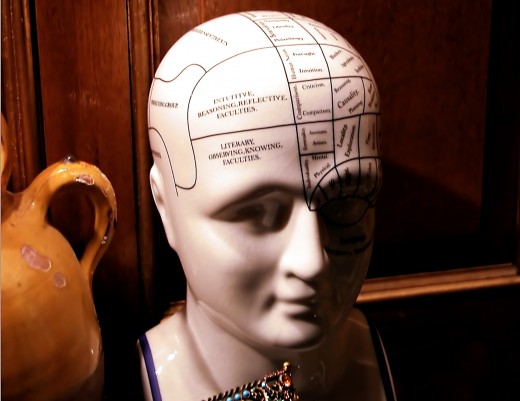Psychiatrists in Adult Mental Health
For many years I was under the care of psychiatrists in the UK. I have probably been under the care of around 12 psychiatrists in total as I moved around quite a lot in my younger years. Although I do not see a psychiatrist anymore, I am able to base this article on my personal dealings with general adult psychiatrists, my observations of them at work and their role in the adult psychiatric service.
How to Become a Psychiatrist
Psychiatrists first have to get a medical degree, then complete two years of foundation training as a doctor. After a further six years of speciality training in psychiatry is completed,( during which time assessments are made), a further exam must be passed to become a member of the Royal College of Psychiatrists. That’s an awful lot of training.

What Are Psychiatrists Expected to Do?
According to the Royal College of Psychiatrists a psychiatrist will use the biopsychosocial model which takes into account such things as family, culture, surroundings and work. Strictly speaking it is made up of the biological, the psychological and the socialogical factors. The role is expected to assess the state of mind, diagnose a mental illness, use psychological treatment, drug treatment and work towards recovery with the patient. Any medical features should also be taken into account. It all sounds like quite a holistic approach doesn’t it? This is the theory, but what is it really like in practice?

Communication and Culture
A large majority of the psychiatrists in the UK are foreigners. Because they are foreigners they inevitably have different cultures. How is that going to be conducive to a good and productive doctor/patient relationship especially in terms of mental health? Language barriers?
It can be a scary business finding out that you are deemed to have an illness of the mind. You need to both understand what is going on and be understood. There are often misinterpretations on both sides when faced with a person who is not au fait with the local dialect. I have become frustrated by this scenario many times. I simply felt my psychiatrist didn’t even fully understood what I said or asked. Equally I have found I didn’t quite understand what the psychiatrist said if only by way of pronunciation.
Imagine you are a middle aged, married, British woman with four children who has just found out she has bipolar disorder and it is impacting heavily on your family life. You are very worried and need to share how all this is affecting you and your family. You may well be faced with a psychiatrist who is not only a man but a foreign man whose family culture is completely different to yours. He may consider some of your worries have no foundation based purely on his perception, given the beliefs and values of his cultural background. This is a vital flaw in any psychiatric system.
Everyone involved needs to be singing from the same hymn sheet, and it is even my belief, that every person with a mental health problem should have the choice of whether they speak to a male or female psychiatrist. We need more British psychiatrists….and soon!
Tongue in Cheek Video on Diagnosing Psychaitric Disorders
Diagnosis and Medicating
I am not going to debate into the origins of the medical science of psychiatry but all I will say is this: if you looked at the Diagnostic and Statistical Manual of Mental Disorders (DSM) published by the American Psychiatric Association the majority of you would find you would meet the criteria for a mental illness. This manual is a psychiatrist’s bible. It lists the criteria and classification of every mental illness. It is this manual that allows a psychiatrist to diagnose you and if you find yourself in front of a psychiatrist he will surely find a label or two that will suit your behaviour.
Labelling a person with a mental illness can have far reaching implications on that person’s life. I know because I was labelled early on in my life. I was suffering with depression at first but I ended up with an array of mental health disorder labels. I had generalized anxiety disorder that led to panic disorder, obsessional compulsive disorder, then apparently personality disorder?
Believe me, when you have been in a crisis with deep depression and have become anxious because your life has been turned upside down on a consistent basis, your personality has a habit of changing! Cause and effect I say; life’s trails I would add, but a psychiatrist will categorize you and treat you accordingly - with medication. Now maybe I am missing something here but that to me is a medical model i.e. there must be a physical cause, a biological or genetic reason so you need medicating.

A psychiatrist is perfectly in his right to prescribe you mind altering drugs (your mind is apparently altered so you need drugs to alter it again). I can honestly say with my hand on my heart that ninety nine per cent of the treatment I got from a psychiatrist was medication and medication alone. These pills do not cure either, at best they alleviate. Many have awful side effects. So a psychiatrist is not particularly making you well, he is helping you to live with your mental health disorder by medicating you.
Psychological Treatment
I am not sure what is meant by a psychiatrist giving a patient psychological treatment. Here in the UK and in my experience, psychiatrists don’t counsel or give any kind of therapy per se. They have the power to refer you to psychological therapies. Is that what the Royal College of Psychiatrists means? During consultations they may occasionally suggest things you can try to help your situation or symptoms but it’s all a bit vague. When you see a psychiatrist on the NHS in the UK you will be lucky if you have more than twenty minutes per consultation and that’s hardly enough time to be receiving lots of psychological advice. The conversation is likely to be about if you feel better, the same or worse and then lead to changing medication, altering medication or just being given a further appointment to check the same next time.
Importance of Looking at Mental Health With Physical Health
Recovery and Physical Health
I was a patient in the mental health services long enough to realise that only a minority of people totally recover to the effect that they are cured. These people are more likely to have suffered a severe depression, possibly as a reaction to a crisis in their lives. To improve is more likely. To learn to live with is perhaps applicable. As for medical features being taken into account, I personally don’t believe much of this is taken into consideration at all. If you are a diabetic for example and an inpatient in a psychiatric unit then yes, your diabetes will be treated.
A psychiatrist has to be aware of any on-going health issues if only because any medications he gives you might affect any medications you are on or might be dangerous for your medical problem. Anyone who has suffered a lot of pain for a long time will tell you that it affects their mood at times. It was on my psychiatric records that I suffered from acid reflux amongst other things but I don’t recall a psychiatrist ever mentioning it.
I don’t feel the psychiatrist has a role outside of diagnosing and medicating. I honestly feel that the way forward for addressing and treating so called mental illness is to give the power of treating to the psychologists. Give them the power to prescribe medications for a start. Some do but it’s not the norm here in the UK.
Some mental health problems are so severe and critically acute at times, that at such a point of crisis medication may well feel like the only immediate solution. Shouldn’t this be a temporary solution until other forms of treatment are explored? I think the role of the psychiatrist could actually become defunct if psychologists were able to perform the part psychiatrists seem to play in mental health treatment. What a huge saving for the NHS!









